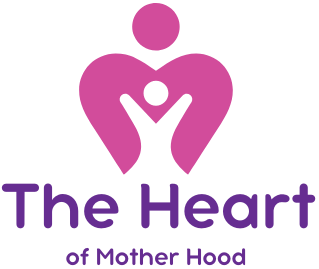“The Heart of Motherhood” seems like it could be the name of a platform, service, or initiative focused on supporting mothers or families. If you’re seeking a privacy policy for an entity with this name, I can provide a general outline of what such a policy would typically cover, assuming the service deals with sensitive data related to parenting, maternal health, or family-related services.
Example Privacy Policy for “The Heart of Motherhood”
1. Introduction
- About Us: This section explains the entity’s mission (e.g., supporting mothers, providing parenting resources, or maternal wellness).
- Policy Purpose: To inform users about how their personal data is collected, used, and protected when they interact with “The Heart of Motherhood” services, which may include a website, mobile app, social media channels, or other platforms.
2. Information We Collect
- Personal Information: This could include names, email addresses, phone numbers, and other identifying details.
- Sensitive Health Data: For services related to maternal health or baby care, data might include pregnancy status, medical history, birth information, and children’s health.
- Content: Any content shared by users (e.g., feedback, forum posts, social media content) related to motherhood, parenting, or other topics.
- Usage Data: Information about how users interact with the platform (e.g., IP addresses, device types, time spent on the platform, and browsing activity).
- Cookies and Tracking: Information collected through cookies, web beacons, and other technologies to improve user experience.
3. How We Use Your Information
- To Provide Services: Personal data may be used to offer tailored content, parenting advice, maternal wellness tips, or support services.
- To Communicate: To send newsletters, updates, product recommendations, or offers related to parenting and motherhood.
- To Improve the Platform: Usage data helps optimize the website or app, develop new features, and enhance the user experience.
- To Offer Support: Contacting users for feedback, customer service requests, or to address concerns regarding services.
4. How We Share Your Information
- Third-Party Service Providers: The Heart of Motherhood may share data with third-party vendors who assist with operations (e.g., payment processors, email providers).
- Legal Compliance: The policy should outline situations where personal data might be disclosed to comply with legal obligations, such as court orders or other law enforcement requests.
- Business Transfers: In case of business sale or merger, personal data may be transferred as part of the process.
5. Data Retention
- Retention Period: Personal data will only be kept for as long as necessary to provide services, fulfill legal obligations, or address user needs.
- Data Deletion: Users can request that their data be deleted when it’s no longer needed, and a process will be outlined for this request.
6. Data Security
- Security Measures: The policy should describe the measures taken to safeguard personal data, such as encryption, secure servers, and limited access.
- User Responsibilities: Users should be informed about their own responsibility to maintain the security of their account (e.g., strong passwords).
7. Your Rights
- Access and Correction: Users can request to see the data collected about them and make corrections if necessary.
- Deletion: Users have the right to request deletion of their personal data, subject to the platform’s data retention policy and legal obligations.
- Opt-Out of Marketing: Users can opt out of marketing communications by clicking unsubscribe links or contacting customer support.
- Data Portability: Some jurisdictions allow users to request their data in a machine-readable format for transfer to another service.
8. Cookies and Tracking Technologies
- Cookies Usage: The policy should explain what cookies and tracking technologies are used on the website or app, how they help improve the user experience, and how users can manage their cookie preferences.
- Third-Party Analytics: If third-party tools like Google Analytics are used, this should be disclosed.
9. Children’s Privacy
- If “The Heart of Motherhood” platform collects or may collect data from children (e.g., for parenting tips or products), it should comply with relevant regulations like COPPA (Children’s Online Privacy Protection Act in the U.S.) or GDPR (General Data Protection Regulation) for minors in Europe.
- Parental Consent: Explicit consent from a parent or guardian might be required for users under the age of 13 (or 16 in some jurisdictions).
10. Changes to This Privacy Policy
- Policy Updates: The privacy policy should explain how users will be notified of updates, such as via email or through notifications on the platform.
- Effective Date: The date when the policy was last updated should be clearly stated.
11. Contact Information
- Customer Support: A contact email or phone number should be provided for users to inquire about their privacy concerns or to make requests regarding their personal data.
- Data Protection Officer (if applicable): In some cases, especially for large organizations, a Data Protection Officer (DPO) might be listed for users to contact regarding privacy matters.
Key Considerations for “The Heart of Motherhood” Privacy Policy
If “The Heart of Motherhood” is involved in collecting sensitive health information (e.g., related to pregnancy, maternal health, and child development), it is crucial to comply with relevant privacy laws and regulations such as:
- General Data Protection Regulation (GDPR): For users in the EU, GDPR provides stringent guidelines on handling personal and sensitive data.
- California Consumer Privacy Act (CCPA): For users in California, USA, CCPA sets guidelines for consumer privacy, including rights to access, deletion, and opting out of data sharing.
- Health Insurance Portability and Accountability Act (HIPAA): If the platform deals with medical or health-related data in the U.S., HIPAA compliance may be necessary.
A solid privacy policy for “The Heart of Motherhood” should ensure that users’ sensitive information, especially regarding health and family-related topics, is handled with the utmost care and in full compliance with data protection laws. It should also give users control over their data and reassure them about how their personal information is being used and protected.
